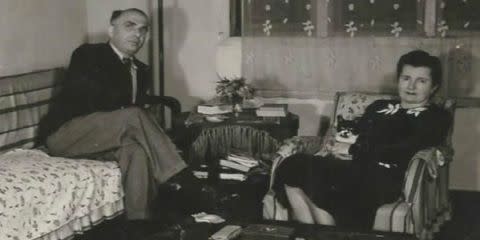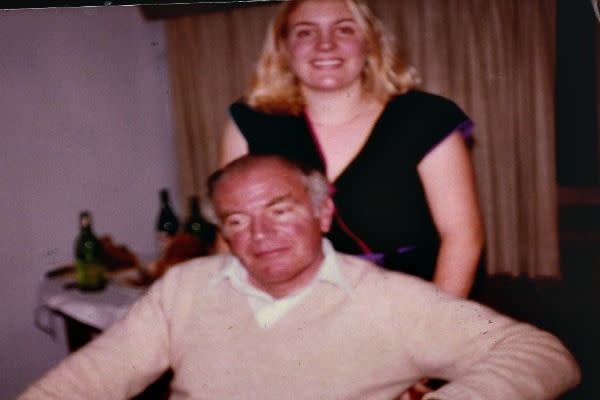After Inheriting a Chest of Family Secrets, I Discovered My Family's Dark History

My father was a mystery to me. I knew he was from Vienna, Austria, but that was about it. He was always nicely dressed, spoke with the kind of accent that people who learn British English have, and walked so quickly it was as if he was on the run from something or someone.
He stood out from all the other kids' dads in the Bay Area suburb where I grew up. There were times when I felt embarrassed by those differences and I wished he wasn't quite so European.
He didn't talk about his life before he came to America, and I didn't ask. When you're a child, you can be pretty self-centered. I didn't know the questions that I should ask nor did I suspect that I would be forever changed by the answers.
After his death, I inherited his Chinese chest but didn't investigate the contents inside it. Cleaning out his apartment had felt intrusive enough; I didn't want to intrude on my father's privacy even further.
Then one day, I opened the lid too forcefully, causing it to hit the side of the wall it was up against. The chest broke open, allowing the papers, photographs, and secrets that were inside of it to spill out.
At first, I saw faded black-and-white pictures of my grandparents and my father — scenes of their life in Vienna and doing things like taking a walk down a tree-lined street or enjoying a meal together in an outdoor cafe.
But then three Austrian passports belonging to my grandparents and father caught my eye as they were embossed with the Nazi swastika insignia and red "J"s on their covers.
We were Jewish?
I hadn't been raised with a religion and had never heard any mention of being Jewish. As I combed through the papers, I learned that my grandfather and both his parents were Jewish, but my grandmother wasn't. This combination made the Nazis categorize my father as a mongrel Jew.
I had never read such harsh words about my father and I choked back tears.

According to some of the documents that I found, once my grandfather's and father's Jewish bloodlines were confirmed, Austria was a hostile country to them. My grandparents and my dad were told to leave their beloved homeland.
There weren't a lot of places that were open to refugees but Shanghai was – and that's where they went. They were lucky; so many other families were not.
My grandparents had gone ahead of my father, as he hoped to finish his schooling in Vienna. He was convinced that he'd easily be able to leave Austria but then the Anschluss happened and he was trapped. From some other documents, I could see that there were incidents involving the Nazi youth party physically hurting my dad. Finally, a gentile friend of the family vouched for father and he was given his papers and ordered to leave Austria immediately.
I was beginning to understand why my father never spoke of his past. It must have been incredibly painful.
For five years during World War II, my family lived in the Jewish Ghetto of Shanghai. If I had been paying attention, instead of playing with my dolls, I probably would have seen the clues.
My grandparents had lived in a shared flat on Tongshan Road, Shanghai, China.
This explained why my father made such excellent Chinese food at home on Sundays.
My parents were divorced, but I asked my mother why no one had told me about the Jewish side of my heritage or about Shanghai. She just said, "Your father wanted to forget that time in his life. He knew he should have been thankful for being spared, but he felt more guilty than grateful."
I wonder if I had some sense of my Jewish background as I was growing up, as I remember writing stories with Jewish girls as the protagonists. One story was so accurately written that my Jewish teacher praised me and said that he had known a rabbi like the one I had described.
The difference between me and my father was that I was desperate for some kind of cultural identity and he didn't want the one that had been thrust upon him.
And although the chest is damaged beyond repair, I'm glad I broke it. I learned about a heritage I didn't know I had, and I got to know both my father and myself a little better.
You Might Also Like

